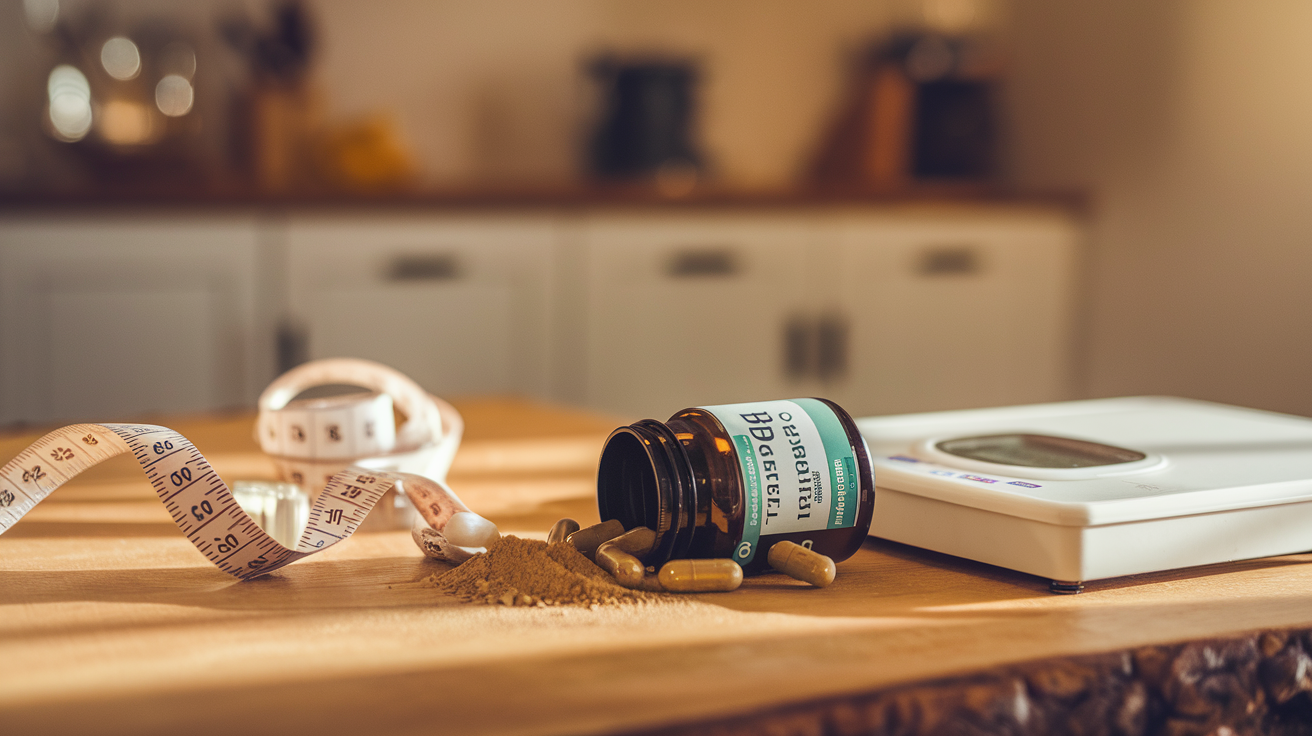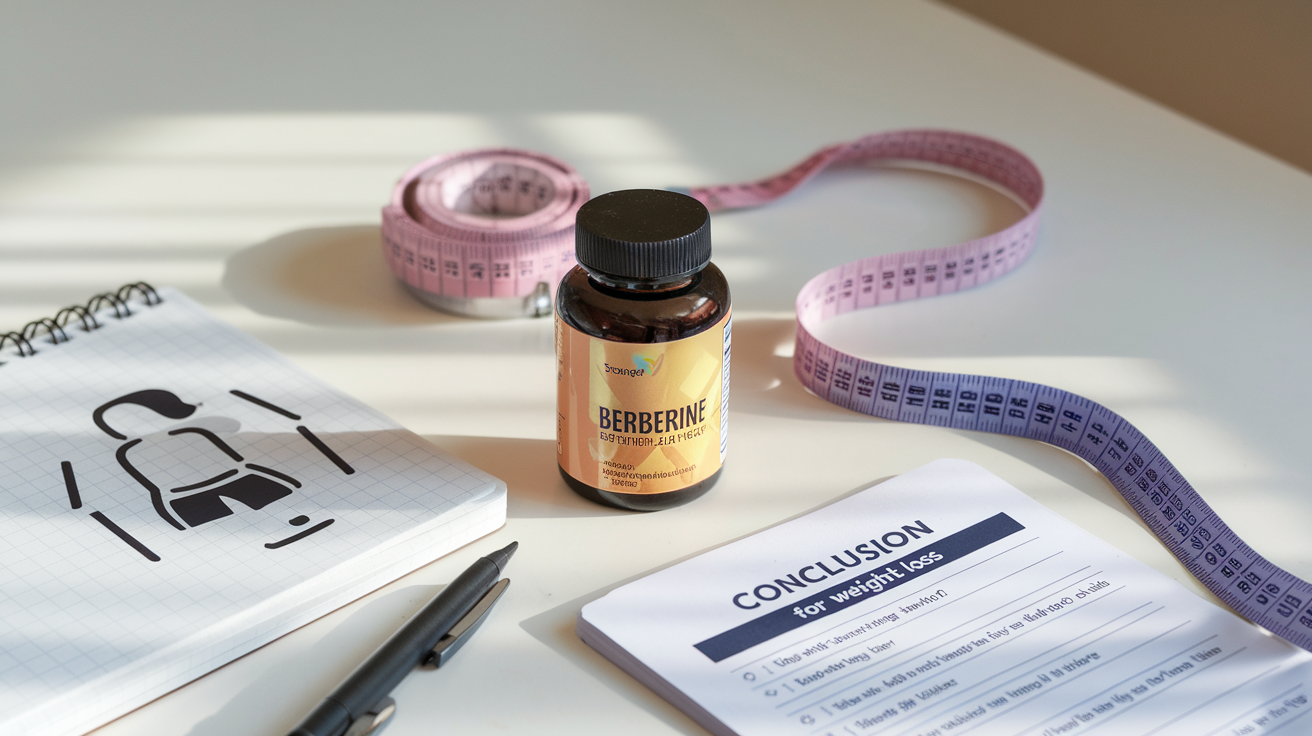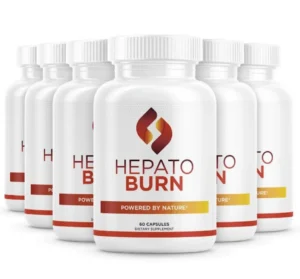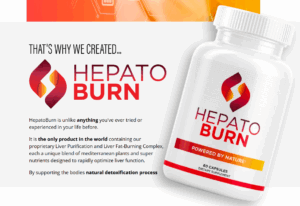Berberine for Weight Loss
You’ve tried literally everything to lose those stubborn pounds, and nothing’s worked. Now your social media is suddenly flooded with people raving about berberine for weight loss. Is this just another overhyped supplement, or could it actually be the solution you’ve been searching for?
I’m about to cut through the noise and give you the straight facts on what berberine can (and can’t) do for your weight loss journey.
This natural compound extracted from plants like barberry and goldenseal has been making waves for its potential to help with weight management and blood sugar control. But before you click “buy now” on that supplement bottle, you need to know the complete story.
And fair warning: what I’m about to tell you about berberine’s effectiveness might completely contradict what that fitness influencer told you last week.
What Is Berberine?
Berberine isn’t some fancy new supplement that just hit the market. It’s actually been around for centuries in traditional Chinese and Ayurvedic medicine. But what exactly is this yellow-colored compound that’s suddenly getting all the attention?
Simply put, berberine is a plant alkaloid found in several different plants, including European barberry, goldenseal, goldthread, Oregon grape, phellodendron, and tree turmeric. When you look at these plants, you’ll notice they all have one thing in common—a yellow-colored stem that contains this powerful compound.
How Berberine Works
Here’s the thing about berberine that makes it so special: it affects your body on a molecular level. It binds to various molecular targets and changes their function, similar to how pharmaceutical drugs work. But unlike many medications, berberine has a wide range of benefits beyond just one specific action.
One of its primary functions? It activates an enzyme called AMP-activated protein kinase (AMPK). Never heard of it? That’s okay. AMPK is sometimes called the “metabolic master switch” because it plays a crucial role in regulating metabolism. When activated, it helps your body process glucose more efficiently and can boost fat burning.
Berberine Natural Product
Hepato Burn Product
Berberine vs. Other Weight Loss Supplements
Berberine stands out from other weight loss supplements because it has actual research backing it up. We’re talking multiple clinical studies, not just anecdotal evidence from your neighbor’s cousin’s friend.
Most weight loss supplements promise the moon but deliver nothing. Berberine, on the other hand, has mechanisms that directly impact how your body handles energy and fat storage. It’s not a miracle pill—nothing is—but it’s backed by science in a way that most supplements simply aren’t.
Berberine Benefits

Weight Loss Support
Berberine isn’t just another supplement making empty promises. This stuff actually works for weight loss, and there’s solid science backing it up.
When you’re trying to shed those stubborn pounds, berberine tackles the problem from multiple angles. It activates an enzyme called AMPK – think of it as your body’s metabolic master switch. When this switch gets flipped, your cells start burning more energy instead of storing it as fat.
But that’s not all. Berberine also:
- Reduces insulin resistance, helping your body process carbs more efficiently
- Decreases fat storage in your liver
- Improves gut health by balancing your microbiome
In one impressive study, participants taking berberine three times daily lost about 5 pounds over 12 weeks – without changing their diet or exercise habits! Imagine what you could achieve when combining it with healthy lifestyle changes.
Blood Sugar Management
If you’re dealing with blood sugar issues, berberine might be your new best friend. It’s been shown to lower blood glucose levels almost as effectively as metformin (a common diabetes medication) but without many of the nasty side effects.
How does it work? Berberine increases insulin sensitivity, meaning your cells respond better to insulin’s signals to absorb glucose from your bloodstream. It also reduces sugar production in your liver and slows carb breakdown in your gut.
Heart Health Protection
Your heart will thank you for taking berberine. This powerful compound:
- Lowers LDL (bad) cholesterol by up to 15%
- Reduces triglycerides by about 22%
- Increases HDL (good) cholesterol
- Helps maintain healthy blood pressure
These benefits combine to significantly reduce your risk of heart disease – the number one killer worldwide.
Berberine Natural Product
Hepato Burn Product
Berberine and Weight Loss
What is Berberine?
Berberine is a bitter-tasting compound found in several plants like barberry, goldenseal, and Oregon grape. It’s been used in traditional Chinese medicine for centuries, but recently it’s been getting tons of attention for its potential weight loss benefits.
And honestly? The hype might actually be justified this time.
Unlike many supplements that promise the world and deliver nothing, berberine has some solid science backing it up. It works by activating an enzyme called AMP-activated protein kinase (AMPK), which is basically your body’s metabolic master switch. When this enzyme gets fired up, your body starts burning more calories and storing less fat.
The Science Behind Berberine for Weight Loss
The research on berberine for weight loss is pretty impressive. In one 12-week study, participants lost about 5 pounds on average while taking berberine. No crazy diets, no extra exercise – just the supplement.
Another study found that berberine reduced body weight and improved insulin sensitivity in obese individuals. And we’re not talking about tiny changes here. Some research shows berberine can reduce body weight by up to 3.6% and body fat by 15% over a three-month period.
That’s serious business for a natural supplement.
How Berberine Helps You Lose Weight
Berberine doesn’t just help with weight loss in one way – it hits it from multiple angles:
- Boosts metabolism – By activating AMPK, it increases your calorie-burning potential
- Improves insulin sensitivity – Makes your body better at processing carbs and sugars
- Reduces fat storage – Helps prevent new fat cells from forming
- Regulates hormones – Balances hormones that control hunger and satiety
- Supports gut health – Improves the balance of bacteria in your digestive system
Berberine vs. Popular Weight Loss Medications
Curious how berberine stacks up against prescription options? Take a look:
| Feature | Berberine | GLP-1 Medications (e.g., Ozempic) | Phentermine |
|---|---|---|---|
| Average weight loss | 3-5% of body weight | 10-15% of body weight | 5-7% of body weight |
| Prescription needed | No | Yes | Yes |
| Cost | $20-50/month | $800-1300/month | $20-70/month |
| Side effects | Mild digestive issues | Nausea, vomiting, potential pancreatitis | Increased heart rate, insomnia |
| Natural compound | Yes | No | No |
While prescription medications may offer more dramatic results, berberine provides a natural alternative with fewer side effects and no prescription required.
Berberine Side Effects
Common Side Effects
Berberine isn’t a walk in the park for everyone. Most people tolerate it well, but your body might protest a bit, especially when you first start taking it.
The most frequent complaints? Digestive issues. We’re talking:
- Stomach cramps
- Diarrhea
- Constipation
- Flatulence (yes, gas)
- Nausea
These tummy troubles typically hit hardest in the first few weeks as your body adjusts. Many people find that taking berberine with food helps minimize these effects.
Serious Side Effects to Watch For
While rare, some people experience more concerning reactions that shouldn’t be ignored:
- Dramatic drops in blood sugar (hypoglycemia)
- Allergic reactions including rash or swelling
- Headaches and dizziness
- Unusually low blood pressure
If you notice any of these, stop taking berberine and call your doctor immediately. This isn’t something to mess around with.
Berberine Natural Product
Hepato Burn Product
Drug Interactions
Berberine doesn’t play nice with everyone. It can be like that friend who starts drama at parties when certain people show up.
Specifically, it may interact with:
| Medication Type | Potential Interaction |
|---|---|
| Diabetes medications | May amplify blood sugar-lowering effects |
| Blood thinners | Could increase bleeding risk |
| Certain antibiotics | May alter effectiveness |
| Blood pressure meds | Might cause dangerous BP drops |
Pregnancy and Breastfeeding Concerns
If you’re pregnant or nursing, pump the brakes on berberine. Research shows it can cross the placental barrier and may affect the development of your baby. It’s also found in breast milk, potentially impacting your little one.
The stakes are too high here. Just wait until you’re done with this season of life before trying berberine for weight loss.
Good Sources of Berberine
Natural Sources of Berberine
Looking for berberine in its natural form? You’re not alone. Berberine isn’t something you’ll find in everyday foods like apples or chicken. Instead, it’s concentrated in specific plants that have been used in traditional medicine for centuries.
The richest natural sources of berberine include:
- Barberry (Berberis vulgaris): The bark, root, and berries all contain significant amounts of berberine
- Oregon Grape (Mahonia aquifolium): The root bark is particularly high in berberine
- Goldenseal (Hydrastis canadensis): A native North American herb with berberine in its roots and rhizomes
- Chinese Goldthread (Coptis chinensis): Used in traditional Chinese medicine for over 3,000 years
- Tree Turmeric (Berberis aristata): Common in Ayurvedic medicine practices
Supplement Forms
Most people don’t chew on barberry roots (thank goodness). Instead, berberine supplements come in several convenient forms:
- Capsules: The most common and consistent way to get your dose
- Tablets: Often combined with other ingredients for enhanced effects
- Powders: For those who prefer to mix their own concoctions
- Liquid extracts: Fast-absorbing but often have a bitter taste
The typical supplement contains 500-1500mg of berberine hydrochloride, which is the most studied form.
Quality Matters
Not all berberine supplements are created equal. When shopping for berberine, check for:
- Third-party testing certification
- Clear indication of berberine content (look for “berberine HCl”)
- Reputable manufacturers with transparent sourcing
- Minimal fillers and additives
- Standardized extract percentages
A good berberine supplement might cost more, but when you’re taking something to improve your health and potentially lose weight, cutting corners rarely pays off.
Berberine Natural Product
Hepato Burn Product
Who Should Not Take Berberine?
While berberine shows promise for weight loss, it’s definitely not for everyone. Some people should steer clear of this supplement entirely.
Pregnant or Breastfeeding Women
Pregnant or breastfeeding women should avoid berberine completely. The compound can cross the placenta and potentially affect fetal development. There’s also evidence it may be transferred through breast milk, posing unknown risks to infants.
People with Diabetes on Medication
If you’re already taking diabetes medications, adding berberine could cause your blood sugar to drop dangerously low. The double-whammy effect isn’t worth the risk without medical supervision.
Those with Digestive Issues
Got IBS, Crohn’s, or other digestive conditions? Berberine might make your symptoms worse. The supplement commonly causes digestive side effects even in people with healthy guts – diarrhea, constipation, gas, and stomach pain aren’t uncommon.
Individuals with Heart Conditions
Berberine can affect heart rhythm and blood pressure. Anyone with existing heart conditions or taking heart medications should talk to their doctor before trying berberine.
People with Liver or Kidney Problems
Your liver and kidneys process and eliminate supplements from your body. If these organs aren’t functioning at 100%, berberine could build up to harmful levels in your system.
Children and Teens
The safety of berberine hasn’t been established for growing bodies. Kids and teenagers should avoid this supplement unless specifically prescribed by a healthcare provider.
Anyone Taking These Medications
Berberine can interact with several common medications:
- Blood thinners (increased bleeding risk)
- Certain antibiotics
- Statins and other cholesterol medications
- Immunosuppressants
- Some antidepressants
Bottom line: check with your doctor before starting berberine, especially if you have any health conditions or take medications.
Berberine Takeaways

Key Berberine Benefits
Berberine isn’t just another supplement making the rounds on social media. This plant compound has some serious research backing its weight loss claims.
When you take berberine, it activates AMPK—basically your body’s metabolic master switch. This helps your cells process glucose better and makes your body burn fat more efficiently. Pretty impressive for a yellow-colored plant extract.
Most studies show people lose about 2-4 pounds per month with berberine, without changing their diet. Combine it with healthy eating and exercise? Those results could double.
Recommended Dosage
The sweet spot for berberine is 500mg, three times daily before meals. This timing maximizes its benefits for blood sugar control and fat burning.
Don’t start with the full dose right away though. Your stomach might revolt. Begin with 500mg once daily for a week, then gradually increase.
Potential Side Effects
Berberine isn’t perfect. About 1 in 3 people experience:
- Stomach cramps
- Diarrhea
- Constipation
- Nausea
These usually improve after a couple weeks as your body adjusts.
If you’re taking medications—especially for diabetes, blood pressure, or cholesterol—talk to your doctor first. Berberine can interact with these meds and potentially drop your blood sugar too low.
Berberine Natural Product
Hepato Burn Product
Bottom Line
Is berberine worth trying? If you’re struggling with weight loss and blood sugar issues, absolutely. Just don’t expect miracle results overnight. Give it at least 8-12 weeks, and remember it works best alongside healthy eating and regular movement.
Berberine FAQs
Top doctors in ,
Wondering who to talk to about berberine for weight loss? The medical field is catching up with this supplement’s popularity, but finding the right doctor can be tricky.
Primary care physicians are usually your first stop. They can discuss how berberine might fit into your overall health plan and check for potential medication interactions. Many are becoming more knowledgeable about supplements as patient interest grows.
Endocrinologists specialize in hormones and metabolism, making them particularly qualified to advise on berberine. Since berberine may affect blood sugar, these specialists can provide targeted guidance, especially if you have diabetes or insulin resistance.
Integrative medicine doctors bridge conventional and alternative approaches. These physicians often have deeper training in supplements like berberine and can help develop a comprehensive weight loss strategy that might include it.
Naturopathic doctors (NDs) typically have extensive knowledge of herbal supplements. They’re usually well-versed in berberine’s effects and can suggest appropriate dosing.
Find more top doctors on
Looking for qualified medical professionals to discuss berberine? Several online platforms can help:
ZocDoc allows you to filter doctors by specialty and read patient reviews. Many users mention if a doctor is open to discussing supplements.
Healthgrades provides detailed information about doctors’ training and patient satisfaction scores.
WebMD’s physician directory lets you search by location and specialty, helping you find doctors who might be familiar with berberine.
The Institute for Functional Medicine’s directory specifically lists practitioners who typically have more training in supplements and alternative approaches.
Berberine Natural Product
Hepato Burn Product
Related Links
The NIH’s National Center for Complementary and Integrative Health offers evidence-based information about supplements like berberine.
American Association of Naturopathic Physicians can help locate NDs trained in herbal medicine.
Examine.com provides detailed scientific analyses of berberine’s effects on weight and metabolism.
The Cleveland Clinic’s Integrative Medicine section has reliable information about incorporating supplements into conventional treatment plans.
Berberine stands out as a promising natural supplement for weight management, offering multiple mechanisms to support fat loss through improved glucose metabolism, enhanced insulin sensitivity, and increased AMPK activation. While research continues to evolve, the available evidence suggests berberine may be particularly beneficial for those struggling with metabolic conditions, insulin resistance, or stubborn weight loss plateaus. As with any supplement, it’s essential to source high-quality berberine from reputable manufacturers and start with lower doses to assess tolerance.
Before adding berberine to your wellness routine, consult with a healthcare provider, especially if you have pre-existing health conditions or take medications. Remember that supplements work best as part of a comprehensive approach—combining berberine with balanced nutrition, regular physical activity, quality sleep, and stress management will maximize your weight loss journey and overall metabolic health. The power of this ancient remedy lies not in viewing it as a magic solution, but as one valuable tool in your broader health optimization toolkit.




